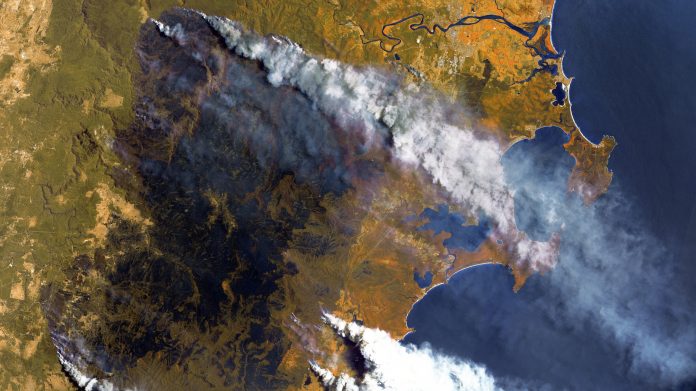As part of an ocean funding package of nearly €1 billion, the European Commission will fund €55 million into climate change monitoring over two years
At the Our Ocean Conference (OOC) in Palau, the EU pledged a list of 44 commitments for the 2020-2022 period. Over a period of two years, the Commission will finance more marine environmental monitoring via Copernicus.
Copernicus looks for global and regional scale of marine environment
Copernicus, the satellite programme, provides information for the EU in terms of climate change monitoring and also purposes of security.
When it comes to marine monitoring, the data looks at the state of things like sea ice, and biogeochemical ocean, on a global and regional scale. Data on currents, winds and sea ice help to improve ship routing services, securing supply chains and decreasing carbon emissions.
The programme theoretically boosts the Blue Economy across all maritime sectors, by allowing free access to the ocean data.
Studies on marine systems estimate that every euro invested in marine protected areas generates a return of €3, supporting the economic onus for investment in the oceans and marine environment.
IPCC Report highlights importance of mitigation for ocean biodiversity
The IPCC Report, published in 2021, found that global warming will decrease suitable habitat space for current terrestrial and marine ecosystems and irreversibly change their composition, increasing in severity above 2°C.
The scientists behind the landmark climate report also highlight the impact that climate change has on food security and diet, as marine biodiversity is directly linked to these things.
The authors write that: “Increasing weather and climate extreme events have exposed millions of people to acute food insecurity and reduced water security, with the largest impacts observed in many locations and/or communities in Africa, Asia, Central and South America, Small Islands and the Arctic.”
The report also reveals the full extent to which humanity is to blame for the “unprecedented” climate emergency. The answer is definitive – “human influence has warmed the atmosphere, ocean and land.”
EU aims to protect 30% of Member States’ sea area
Another key marine commitment will be €500 million over the period 2021-2023 for research, development and innovation in seed funding for the Horizon Mission: Restore our Ocean and Waters by 2030.
Mission Ocean will look at how the ocean and waters play a key role in climate neutrality, especially around the goal of protecting 30% of the Member States’ sea area. In addition, the EU wants to restore marine eco-systems, reduce plastic pollution, the use of chemical pesticides and further the development of a circular blue economy.
The ocean is bringing all these benefits to us and we need to protect it.
Commissioner for Environment, Oceans and Fisheries, Virginijus Sinkevičius, said: “The sum the EU is committing today is significant, but not as significant as the role that the ocean plays for our very existence. It provides us clean air, regulates the climate, hosts a large part of biodiversity on Earth and is key for our economy. The ocean is bringing all these benefits to us and we need to protect it.
“Our future depends upon it.”











